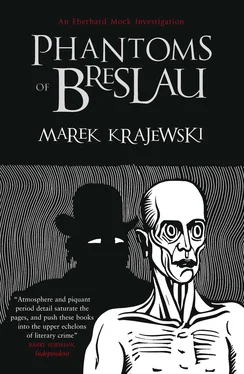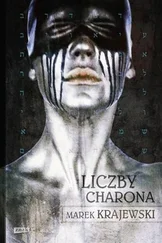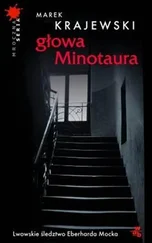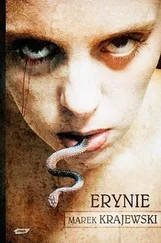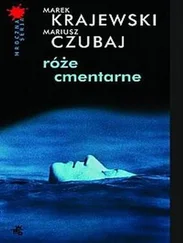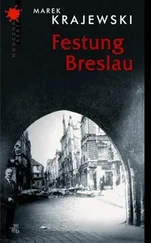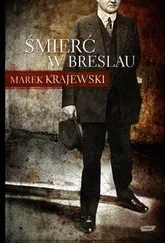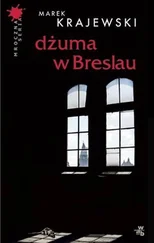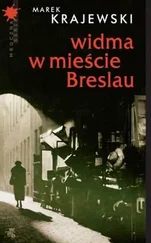Marek Krajewski - Phantoms of Breslau
Здесь есть возможность читать онлайн «Marek Krajewski - Phantoms of Breslau» весь текст электронной книги совершенно бесплатно (целиком полную версию без сокращений). В некоторых случаях можно слушать аудио, скачать через торрент в формате fb2 и присутствует краткое содержание. Жанр: Полицейский детектив, на английском языке. Описание произведения, (предисловие) а так же отзывы посетителей доступны на портале библиотеки ЛибКат.
- Название:Phantoms of Breslau
- Автор:
- Жанр:
- Год:неизвестен
- ISBN:нет данных
- Рейтинг книги:3 / 5. Голосов: 1
-
Избранное:Добавить в избранное
- Отзывы:
-
Ваша оценка:
- 60
- 1
- 2
- 3
- 4
- 5
Phantoms of Breslau: краткое содержание, описание и аннотация
Предлагаем к чтению аннотацию, описание, краткое содержание или предисловие (зависит от того, что написал сам автор книги «Phantoms of Breslau»). Если вы не нашли необходимую информацию о книге — напишите в комментариях, мы постараемся отыскать её.
Phantoms of Breslau — читать онлайн бесплатно полную книгу (весь текст) целиком
Ниже представлен текст книги, разбитый по страницам. Система сохранения места последней прочитанной страницы, позволяет с удобством читать онлайн бесплатно книгу «Phantoms of Breslau», без необходимости каждый раз заново искать на чём Вы остановились. Поставьте закладку, и сможете в любой момент перейти на страницу, на которой закончили чтение.
Интервал:
Закладка:
The red-headed man got back into the automobile and drove off. After a short while, an elegantly dressed couple appeared on the drive. The woman, in her thirties, wore a black Chanel dress with extravagant wavy stripes, a hat with a white chrysanthemum and a stole, while the older man wore a tailcoat and a white waistcoat which reflected the light from the lanterns along the drive. They went to the gate and looked around. The man opened the gate and stepped out onto the pavement. Apart from a lone car parked at some distance, Wagnerstrasse was empty. The woman fixed her faintly amused eyes on the car. Her companion’s gaze was none too friendly. Both noted the four men sitting inside. At the steering wheel sat a small individual with a hat pushed down over his nose. Next to him sprawled a well-built, dark-haired man. The smoke spiralling from his cigarette caused the two men in the back of the car to squint. One of the two had something wrapped around his face, as if he were suffering from toothache, while the other could barely fit in the back seat. The dark-haired man turned to them, caught the one with the bandage by the neck and pointed to the elegant woman.
He said something and the man with the toothache nodded. The dark-haired man touched the driver on the shoulder and the car abruptly pulled away. A moment later it had disappeared from view. The woman in the exquisite black dress and the man in the tailcoat returned to the villa. The butler looked at them in surprise. The man in the tailcoat was a little annoyed, the woman in the black dress indifferent.
BRESLAU, THAT SAME SEPTEMBER 4TH 1919
A QUARTER PAST NINE IN THE EVENING
The children’s party being held at Baron von Bockenheim und Bielau’s villa in celebration of the eighth birthday of Baron Rudiger II’s only daughter was coming to an end. Parents of those invited sat beneath canopies adorned with the Baron’s coat of arms, moistening their lips and tongues with Philippe champagne. Ladies chattered about the success of Hauptmann’s Weavers in Vienna, while men discussed Clemenceau’s threats to call for changes to the German constitution. Puffed up with the grandeur of their master and mistress’ nouvelle noblesse , the servants moved among them slowly and ceremoniously. The first of the trusted servants carried a tray of empty glasses, the second a tray of full ones. The children, wearing sailor suits or tweeds and caps a la Lord Norfolk, ran around the garden watched over by their governesses. A few girls stood around a piano singing Beethoven’s “Ode to Joy” to the brisk rhythm hammered out on the keys by a long-haired musician. The lanterns, like the conversations, were slowly waning. The gentlemen had decided to smoke a farewell cigarette, the ladies to take one more sip of champagne “whose bubbles”, as one of them expressed it, “added an interesting bitterness to the sweet Viennese pastry twists”.
The lady of the house, Baroness Mathilde von Bockenheim und Bielau, placed her glass on the tray offered her by Friedrich the butler. She gazed lovingly at her daughter Louise, who was running across the garden trying not to lose sight of a small kite that was still just visible in the half-light of the lanterns. Out of the corner of her eye, the Baroness saw the empty glasses on the tray. She turned around in annoyance. Had the old man failed to notice that she had already replaced her glass? Didn’t he realize that there were other guests to be seen to? Maybe something’s wrong with him? He’s so old … She looked at Friedrich with concern as he stood before her, his eyes revealing a readiness to lay down his life for his mistress.
“Did you want something from me, Frederic?” she asked very gently.
“Yes, your Ladyship.” Friedrich looked at little Louise von Bockenheim und Bielau as her governess chased her with open arms, calling with a strong English accent: “Don’t run so fast, little Baroness, you’ll get too hot!”
“I didn’t dare disturb your moment of contemplation as you admired the little Baroness, like quicksilver …”
“Did you not hear my question, Frederic?” the Baroness said even more gently.
“A telephone call for you, Baroness,” Friedrich announced. “It’s the man who handed your Ladyship that strange business card a few moments ago.”
“You should spare yourself the word ‘strange’, my dear Frederic,” hissed the Baroness. “You’re not here to make comments.”
“Yes, of course, your Ladyship.” Friedrich bowed, his eyes now revealing less readiness to sacrifice his life for his employer. “What am I to say to the gentleman?”
“I’ll talk to him.” She excused herself from the ladies for a few moments and floated across the garden, bestowing smiles all around. The warmest smile was for her husband, Baron Rudiger II von Bockenheim und Bielau.
Climbing the steps to the villa, she looked once again at the business card and the word “Verte”. On the reverse were the words: “Concerning cabbies and carters”. The Baroness stopped smiling. She entered her boudoir and picked up the receiver.
“I’m not going to introduce myself,” said a man’s hoarse voice. “I’m going to ask you some questions and you’re going to answer truthfully. Otherwise the Baron will have to find out about his wife’s secret life … Why aren’t you saying anything?”
“Because you haven’t asked me anything.” The Baroness took a cigarette from a crystal case and lit it.
“I want to know the addresses of the men you take as escorts after your visits to the Hungarian King. They dress up — one as a carter, another as a cabby. I’m only interested in the ones who dress up as sailors.”
“You like sailors, do you?” The Baroness rippled with quiet laughter. “You want them to screw you, do you?” Obscenities excited her. She wanted to hear this man swear, in his voice hoarse with tobacco. She liked swearing and the smell of cheap tobacco.
“You’d know something about that, wouldn’t you? Answer me, you old bag, or do I have to speak to the Baron?” The man’s voice changed tone.
“You’re through to him already,” the Baroness replied. “Speak to this wretched blackmailer, darling!”
“Baron Rudiger II von Bockenheim und Bielau speaking,” said a deep voice. “Don’t try to blackmail my wife, dear man. It’s despicable and base.”
Baron Rudiger II von Bockenheim und Bielau replaced the receiver and left his study, kissing his wife on the forehead on the way.
“Let’s say goodbye to our guests, my little dawn,” he said.
BRESLAU, THAT SAME SEPTEMBER 4TH, 1919
ELEVEN O’CLOCK AT NIGHT
Baroness Mathilde von Bockenheim und Bielau sat at her escritoire writing a letter of warning to her friend Laura von Scheitler, a habitue of the Hungarian King whose noble title and coat of arms were brand new to her — just like her own. When she had finished the brief note, she sprayed the back of the paper with some perfume and put it into an envelope. She then tugged on the bell and, rubbing some cold cream bought at Hopp’s House of Beauty for the astronomical sum of three hundred marks into her alabaster complexion, she sat down at her dressing table in front of the mirror. She waited for Friedrich and heard a knock at the door.
“ Entre !” she called, and carried on rubbing the cream into her generous decollete .
She looked into the mirror and saw two hands on her delicate skin. She felt one of them, rough and gnarled, over her mouth, while the other pulled her hair. The Baroness felt excruciating pain on her head and landed on the chaise longue. A man with red hair sat astride her, pinning her shoulders to the sofa with his knees. With one hand he again covered her mouth, and with the other slapped her sharply on the cheek.
Читать дальшеИнтервал:
Закладка:
Похожие книги на «Phantoms of Breslau»
Представляем Вашему вниманию похожие книги на «Phantoms of Breslau» списком для выбора. Мы отобрали схожую по названию и смыслу литературу в надежде предоставить читателям больше вариантов отыскать новые, интересные, ещё непрочитанные произведения.
Обсуждение, отзывы о книге «Phantoms of Breslau» и просто собственные мнения читателей. Оставьте ваши комментарии, напишите, что Вы думаете о произведении, его смысле или главных героях. Укажите что конкретно понравилось, а что нет, и почему Вы так считаете.
